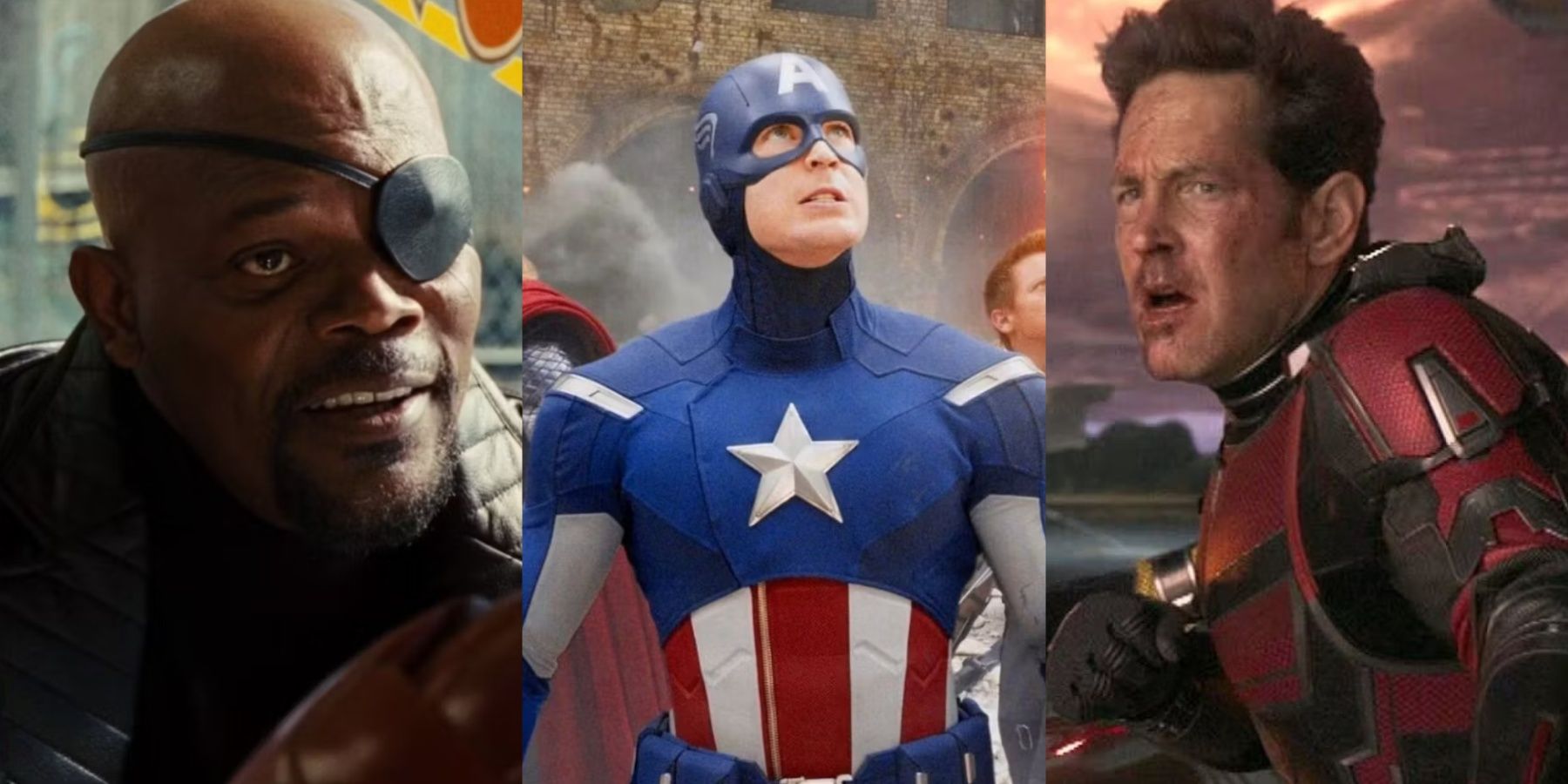The Marvels is the MCU’s most recent installment that reminds audiences what this cinematic universe is all about: team-ups. It features characters from previous MCU shows, such as WandaVision and Ms. Marvel. In fact, The Marvels is its own culmination of films similar to The Avengers in its own way. It acts as a sequel not only to Captain Marvel, but to Ms. Marvel, as well. It’s a massive movie with a large cast. However, there might be a change on the horizon.
Between reports coming out that the MCU is “in shambles” and Marvel is reworking Daredevil: Born Again, there seems to be a turning of the tide at the Disney-owned studio. It comes at an opportune time, too, since fans have complained about the repetitive formula in Marvel movies since the end of Phase One. While The Marvels doesn’t stray too far from the formulaic beats of other MCU properties, future installments into the universe might.
RELATED: Marvel Bringing Back Iron Man Would Be Admitting Defeat
The Marvels Resembles Every Other Marvel Movie
Director
Nia DaCosta
Writers
Nia DaCosta, Megan McDonnell, and Elissa Karasik
Release Date
November 10, 2023
Cast
Brie Larson, Teyonah Parris, and Iman Vellani
The Marvels is another big-budget, shiny movie that brings multiple stars from other MCU projects together. It’s nothing different for the MCU. The whole point of a cinematic universe is to have some crossover, and the way the creators executed it for The Marvels was quite astounding. They built it up through various properties, starting with WandaVision when Monica Rambeau left for space with a Skrull. Then there was a direct tie-in with The Marvels at the end of the Ms. Marvel series, when Carol Danvers (Brie Larson) blasted into Kamala Khan’s bedroom.
The CGI that everyone has come to expect from a Marvel flick constitutes its inflated budget. Spacefaring characters with magnificent powers of flight aren’t easy to portray onscreen without top-tier special effects. To a degree, the large budget is necessary, especially considering that these movies pull in talent from other projects, and they’ve negotiated specific salaries. However, smaller budgets could be the way forward for the MCU.
Blade & Deadpool 3 Show a Willingness to Branch Out
There seems to be a big change coming to the MCU with the production of Blade and Deadpool 3. Ever since the first Deadpool film received an R-rating, fans have wanted it to remain that way, even when Disney acquired the filming rights to the property. It made everyone smile when Ryan Reynolds confirmed that Deadpool 3 retains its R-rating, keeping the Merc With a Mouth the Merc With a Foul Mouth. Now, Blade is receiving the same treatment.
Reports confirm that Blade will be the second MCU project rated R, most likely for language and violence. If Mahershala Ali’s Blade is going to be anywhere near the level of violence that Wesley Snipes’ was, it’s necessary. Additionally, on top of all the news about the MCU Blade project (some of which has been debunked in social media posts), it’s receiving a budget of $100 million. This might be concerning for many fans initially, because a lower budget can translate as not being able to accomplish everything that’s necessary for a movie. But sometimes, a lower budget can lead to a significantly better movie, as it can offer more creative freedom.
Future Projects Should Take a Similar Approach
With the new “Marvel Spotlight” banner, showrunners can create new projects that don’t tie into the larger MCU storylines. This allows creatives to focus on more street-level characters without requiring fans to catch up with everything happening in the MCU. While The Marvels doesn’t require anyone to go back and watch WandaVision or Ms. Marvel, those shows certainly help fill in some gaps. However, there will be questions if audiences haven’t seen Captain Marvel. Marvel Spotlight doesn’t require any effort to watch, giving new fans the perfect jumping on point. Brad Winderbaum, Disney’s Head of Streaming, said:
Marvel Spotlight gives us a platform to bring more grounded, character-driven stories to the screen, and in the case of Echo, focusing on street-level stakes over larger MCU continuity.
This gives creatives more freedom than filmmakers producing a major MCU crossover event. Those come with limitations that hinder creativity more than they encourage it. Deadpool pulled off a box office success with a limited budget and without tying into anything else in Fox’s X-Men universe. In fact, the limited budget required the director to use lesser-known characters like Negasonic Teenage Warhead, who was a big hit with fans.
Despite small budgets of $58 million and $110 million for Deadpool and Deadpool 2, respectively, the films’ creators managed to create a series of movies that fans cherish. They managed to make a gritty movie and shoot on location, which costs significantly more than using CGI backgrounds. It looks like Deadpool 3 is continuing this tradition, keeping the green screen effects to a minimum. Deadpool 3 director Shawn Levy talked with Total Film Magazine (via SlashFilm) and said:
I made a decision very early in prep that even though Deadpool is now in the MCU, I didn’t want another Marvel movie shot on a green screen stage with digital set extensions.
Marvel might benefit from giving smaller budgets to future projects, saving the larger budgets for their massive crossover movies such as The Avengers.
MCU
The Marvel Cinematic Universe (MCU) is a sprawling movie and television franchise that weaves together individual stories of superheroes including Captain America, Thor, Spider-Man, Hulk, Black Widow, and many more. The first film in the franchise, Iron Man, was released in 2008. The MCU has garnered critical praise and financial success, earning billions at the box office and becoming a cultural phenomenon.
Marvel might end up reinventing the wheel after The Marvels. Read More

